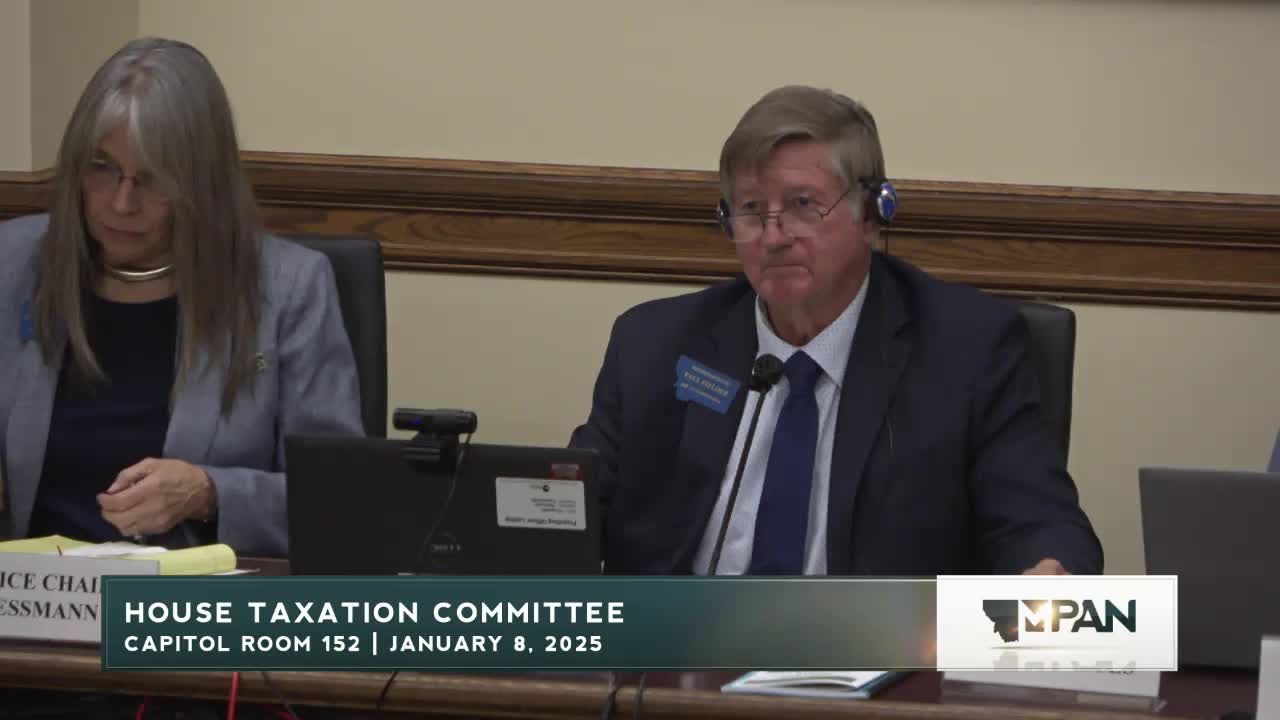Department of Revenue introduces leadership, outlines tax administration and outreach
Get AI-powered insights, summaries, and transcripts
Subscribe
Summary
Director Brenda Beatty and senior Montana Department of Revenue officials introduced themselves to the House Taxation Committee, described division responsibilities, cited volumes of returns and collections, and invited legislators to training sessions and site tours.
Brenda Beatty, director of the Montana Department of Revenue, introduced the department’s leadership team and provided a broad overview of agency responsibilities, staffing and outreach ahead of the legislative session.
Beatty said the department’s mission is to execute laws passed by the legislature and emphasized her preference for clear statutory direction: "I don't want to have discretion," she told the committee, adding she wanted legislators to tell the agency "exactly how...you want it done." Beatty said career employees would present nonpolitical, factual information during the session and encouraged legislators to use department staff for technical briefings.
Why it matters: the Department of Revenue administers most major state taxes, property assessment and a range of licensing and collection programs; its staff prepare fiscal estimates and answer technical questions that influence tax and appropriations decisions.
Key details from divisions and witnesses:
- Information Management & Collections (Jill Hamilton) — staff process state tax returns and payments. Hamilton said the division handles hundreds of thousands of individual income returns each year (about 94% electronically), scans millions of documents, and processes billions of dollars in receipts; the statewide collections offset program collected roughly $14 million in offset debt in the last fiscal year.
- Cannabis Control Division (Kristen Barber) — Barber said medical cannabis has been legal since 2004 and adult use was implemented in 2022 after HB 701 (2021). She noted the division licenses hundreds of businesses and thousands of card holders; from January–November 2024, the division estimated roughly $920 million in sales and about $152 million in taxes during that period.
- Property Assessment Division (Paula Gilbert and Robin Rood) — Gilbert described a staff of roughly 289 employees responsible for valuing more than 800,000 parcels on a two‑year mass appraisal cycle (statutory 100% market value, cited as Montana Code Annotated 15‑8‑111). She provided detail on classification, appeals, new construction reviews and the division's interest in oblique imagery to reduce appraiser drive time. Rood explained the mass appraisal process and use of sales to build valuation models.
- Business & Income Tax Division (Derek Bell) — Bell summarized the division's work on individual, corporate and pass‑through returns and introduced bureau chiefs who will appear during hearings. He emphasized outreach, listing more than 77 outreach events last year, and noted that income taxes account for roughly 73% of state general fund collections.
Other divisions and staff introduced included the technology division (Robert Finstad), the alcohol control division (Steve Swanson), tax policy and research unit economists (Dale and staff), and the agency legal team (Dave Stewart and Tony Zammit). Several witnesses offered to host tours of processing facilities and to lead "lunch and learn" trainings for legislators on property taxes, income taxes and other topics.
Ending: The committee thanked the department and scheduled multiple training sessions (property tax training, school funding overview and other lunch‑and‑learns). Director Beatty left committee members her contact number and reiterated the department’s willingness to provide technical support.
